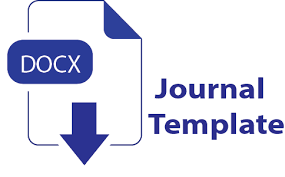Dampak Pandemi Covid 19
(Studi Eksploratif terhadap Pembelajaran Bahasa Arab pada Sekolah Menengah Pertama di Lingkungan Pesantren)
DOI:
https://doi.org/10.36420/tanfidziya.v1i02.76Keywords:
Covid 19, Pembelajaran Bahasa ArabAbstract
The impact of the Covid-19 pandemic has been felt by the world of education, including educational institutions in junior high schools located in Islamic boarding schools. Islamic boarding-based educational institutions relatively limit the use of electronic media and online media in their daily activities, including in the teaching and learning process. The impact felt is very large with the Covid-19 pandemic, where all learning activities must be carried out online. This is the background of the research conducted at the Islamic Junior High School Ma'arif NU Bustanul Muta'allimin Islamic boarding school Nguwok Lamongan. The purpose of this study is to find problems faced by students and teachers in the pesantren environment and provide solutions that help in the learning process. The research method used is descriptive qualitative, using an exploratory case study. The result of this research is that students do not understand the material taught by the teacher through online learning. The students stated that online learning was not fun because the learning was not interesting, so that students became bored with doing online learning. While the impact felt by the teacher, namely learning becomes ineffective, material is not delivered perfectly due to limitations of learning media, teacher work becomes unlimited, internet connection is hampered, and difficulty to practice in the laboratory. The solutions offered are in the form of media to make learning more effective, including learning media for Google classroom, Kahoot, Socrative, Canva, and PhET Simulation.
References
Majid, Abdul. (2014). Belajar dan Pembelajaran Pendidikan Agama Islam. Bandung:
Remaja Rosdakarya.
Nata, Abudin. (2009) Perspektif Islam tentang Strategi Pembelajaran. Jakarta:
Kencana.
Pane Aprida, & Muhammad darwis. (2017). Belajar dan Pembelajaran. Jurnal
Kajian Ilmu-ilmu Keislaman. Vol. 03 No. 2
Arikunto, Suharsimi. (1998). Prosedur Penelitian, Suatu Pendekatan Praktek.
Jakarta: Rineka Cipta.
Aunurrahman. (2013) Belajar dan Pembelajaran. Bandung: Alfabeta.
Bungin, Burhan. (2001). Metodologi Penelitian Sosial. Surabaya: Airlangga
University Press.
Dimyati & Mudjiono. (2009). Belajar dan Pembelajaran, Jakarta: Rineka Cipta.
Siddik, Dja’far. (2006). Ilmu Pendidikan Islam, Bandung: Citapustaka Media.
Ghony, M. Djunaidi & Almanshur, Fauzan. (2014). Metode Penelitian Kualitatif.
Jogjakarta: Ar-Ruzz Media.
Hadi, Sutrisno. (1991). Metodologi Research. Yogyakarta: Andi Offset.
Hamzah B. Uno & Nurdin Mohamad. (2011). Belajar dengan Pendekatan PAILKEM,
Jakarta: Bumi Aksara.
Hartanto, W. (2016). Penggunaan E-Learning sebagai Media Pembelajaran. Jurnal
Pendidikan Ekonomi. 10(1), 1–18.
Margono. (2011). Metodologi Penelitian Pendidikan. Jakarta: Rineka Cipta, 2011.
Moleong Lexy J. (2000). Metode Penelitian Kualitatif. Bandung: Remaja Rosda
Karya.
Muh. Sain Hanafy. (2014). Jurnal Pendidikan: Konsep Belajar dan Pembelajaran,
Lentera Pendidikan. Vol. 17 No. 1 Juni 2014: 66-79.
Muhammad Darwis Dasopang. (2014). Jurnal Pendidikan: Perspektif Strategi
Pembelajaran Akhlak Mulia Membangun Transformasi Sosial Siswa Smp Studi
Multidisipliner. Volume 1 Edisi 1 2014 M/1435.
Nasution. (1988). Metode Penelitian Naturalistik Kualitatif. Bandung: Tarsito.
Nazir, Moh. (2005). Metode Penelitian. Bogor: Galia Indonesia.
Prastowo, Andi . (2012). Metode Penelitian Kualitatif dalam Perspektif Rancangan
Islam. Yogyakarta: Ar-Ruzz Media.
Prawiradilaga, & Salma, dkk. (2016). Mozaik teknologi pendidikan: e-learning.
Jakarta: prenadamedia group.
Republik Indonesia, Undang-undang Republik Indonesia Nomor 20 tahun 2003
tantang Sistem Pendidikan Nasional.
Rustiani, R., Djafar, S., Rusnim, R., Nadar, N., Arwan, A., & Elihami, E. (2019).
Measuring Usable Knowledge: Teacher’s Analyses of Mathematics for Teaching
Quality and Student Learning. In International Conference on Natural and
Social Sciences (ICONSS) Proceeding Series (pp. 239-245).
Sugiyono. (2007). Metode Penelitian Pendekatan Kualitaitf. Bandung: Alfabeta.
Syaiful Bahri Djamarah & Aswan Zain (2006). Strategi Belajar Mengajar. Jakarta:
Rineka Cipta.
Trianto. (2009). Mendesain Model Pembelajaran Inovatif- Progresif. Jakarta:
Kencana.
Ulfatin, Nurul. (2014). Metode Penelitian Kualitatif di Bidang Pendidikan: Teori dan
Aplikasinya. Malang:Banyu Media Publishing.
Wina Sanjaya. (2010). Strategi Pembelajaran Berorientasi Standar Proses
Pendidikan. Jakarta: Kencana.
Yaumi, Muhammad. (2018). Media dan teknologi pembelajaran. Jakarta:
prenadamedia group.
Downloads
Published
How to Cite
Issue
Section
License
Copyright (c) 2022 Tanfidziya: Journal of Arabic Education

This work is licensed under a Creative Commons Attribution 4.0 International License.









